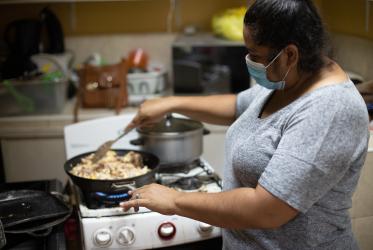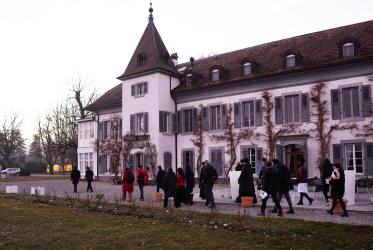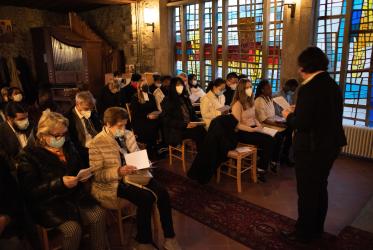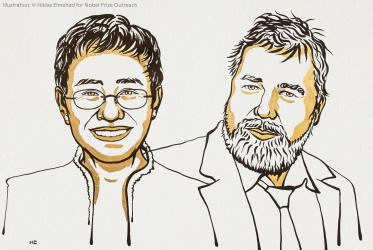Displaying 1 - 20 of 30
Bossey student Carolina Zamorano reflects on study visit to Rome
02 February 2022
WCC honoured with Geneva Engage Award
01 February 2022
Applications open anew for Bossey online course in ecumenism
13 January 2022
WCC congratulates 2021 Nobel Peace Prize laureates
14 October 2021
WCC pays tribute to ecumenist pioneer
08 May 2019
Paving the way for ecumenical studies, learning English in Bossey
24 September 2018
#WCC70: Nathan Söderblom, ecumenical pioneer
29 August 2018
Broken glass of hope grown out of rubble
16 July 2018
WCC students study what makes a peace communicator
18 July 2017













